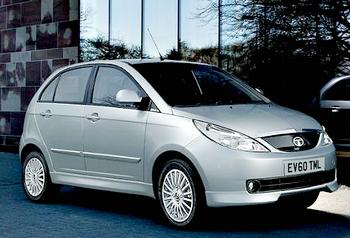
NEW DELHI, India, September 3, 2012 (ENS) – The government of India has approved a plan to get up to seven million electric and hybrid vehicles on Indian roads by 2020.
To start the plan rolling, the first meeting of the National Council for Electric Mobility, NCEM, was held Wednesday in New Delhi under the chairmanship of Praful Patel, Minister for Heavy Industry and Public Enterprises.

The council adopted the National Electric Mobility Mission Plan 2020, NEMMP 2020, the mission document for National Mission for Electric Mobility.
The NEMMP 2020 lays out the vision, sets the targets and provides the roadmap for the adoption of efficient and environmentally friendly electric vehicles and hybrids in India by 2020.
The government will provide the initial impetus for NEMMP 2020 through demand support measures to encourage faster consumer acceptance of these newer technologies which have a higher cost of acquisition, the council agreed.
In addition, government will facilitate automotive R&D and put electric vehicle charging infrastructure in place.
The NEMMP will require an investment of 230 billion rupees (3.3 billion euro). The government is going to invest a little over half of the total sum over the next five to six years, the council said.
The industry will partner with the government and invest in developing the products and creating the manufacturing systems.
The National Electric Mobility Mission Plan 2020 is based on in-depth primary data gathered in a study conducted jointly by the government and the industry and detailed stakeholder consultations involving all related government ministries, automotive industry, battery manufacturers, academia and research institutes.
A cost-benefit analysis for the NEMMP 2020 also has been carried out. The council projects that if India is able to realize the demand potential for electric and hybrid vehicles by 2020, there would be huge benefits by way of liquid fuel savings, lowering of carbon and other emissions and job creation.

The council said the plan “will encourage the Indian industry to shift to newer, cleaner technologies so that it builds its future competitive advantage around environmentally sustainable products, high end technologies, and innovation, thereby helping to improve the competitiveness of domestic automotive industry.”
“The substantial savings on account of decrease in liquid fossil fuel consumption as a result of shift to electric mobility will more than offset the support provided,” the council said, “thereby justifying this initiative as an economically viable proposition.”
Given the way this plan mitigates the adverse impact of transportation on the environment, the NCEM said is was “of the firm belief that supporting the faster adoption of hybrid and electric vehicles and their manufacture in India will be a wise investment that we need to make for our future generations.”
The council said it plans to formally release the NEMMP 2020 document to the nation “very soon.” At least half of the new electric and hybrid vehicles are expected to be two-wheelers.
The work for implementation of the plan is being headed by Department of Heavy Industry with the support of the National Automotive Testing and R&D Infrastructure Project, NATRiP.
The council said it will involve finalization and rollout of a comprehensive array of interventions, plans, policies and projects over the next few months.
The council meeting was attended by Minister for Urban Development Kamal Nath; Minister for New & Renewable Energy Dr. Farooq Abdullah; Minister for Road Transport and Highways Dr. C.P. Joshi; Minister for Science & Technology Vayalar Ravi; Minister of State for Finance Namo Narain Meena; Planning Commission Member Dr. K. Kasturirangan; Principal Scientific Adviser to the Prime Minister Dr. R. Chidambaram; and leaders from the industry, academia and research institutes.
Copyright Environment News Service (ENS) 2012. All rights reserved.
